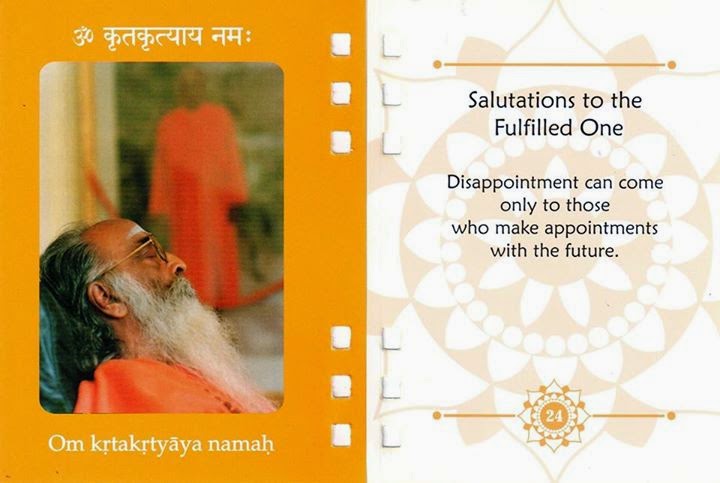MUNDAKOPANISHAD : CHAPTER-3. SECTION-2. MANTRAM-7.{ Nature of Liberation.}
MUNDAKOPANISHAD
CHAPTER-3.
SECTION-2.
MANTRAM -7.{ Nature of Liberation.}
"Gatah kalah pancadasa pratistha
devasca sarve prati-devatasu,
karmani vijnana-mayas-ca atma
pare-vyaye sarva eki-bhavanti."
gatah = gone away or enter into;
kalah = parts ( phases );
pancadasa = fifteen;
pratisthah = sources, elements;
devah ca = and Devata-s ( senses );
sarve = all;
prati-devatasu = in the corresponding Deva-s ( deities );
karman- = deeds;
vijnana-mayah = full of knowledge;
ca = and;
atma = Paramatma ( jivatma ) that is, Brahmam;
pare = supreme, highest;
avyaye =imperishable;
sarva = all;
eki-bhavanti = get united.
"The Fifteen Kala-s ( parts ) enter into their elements, their Devata-s ( senses ) into their corresponding Deva-s ( Deities ), and their deeds and their 'Self-full-of-knowledge' ( intellectual Self ) all get united, in the highest and imperishable BRAHMAM"
Next : Discussion-1. "Fifteen Kala-s" ....
To be continued ....



.jpg)

Comments
Post a Comment